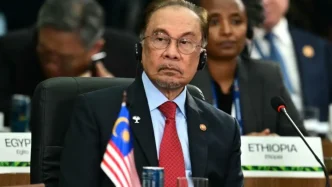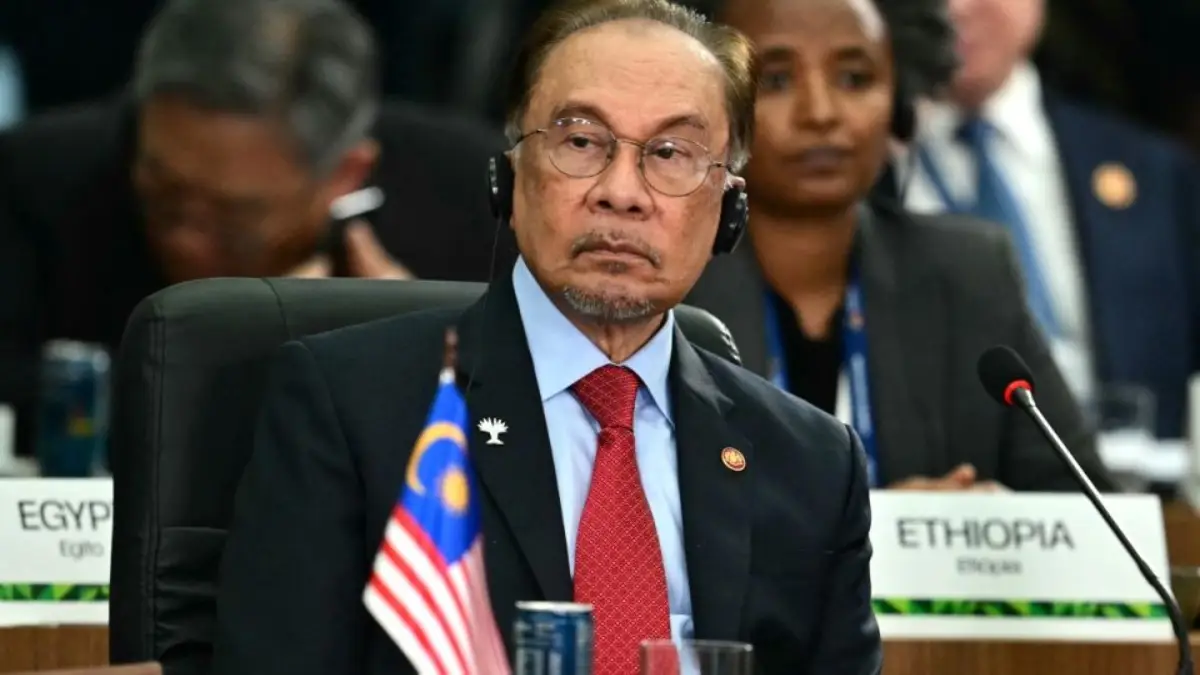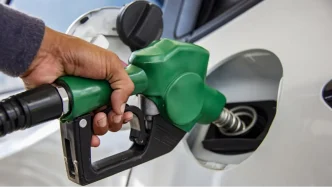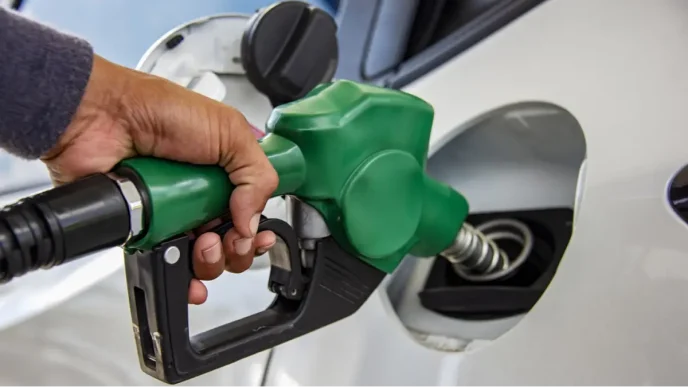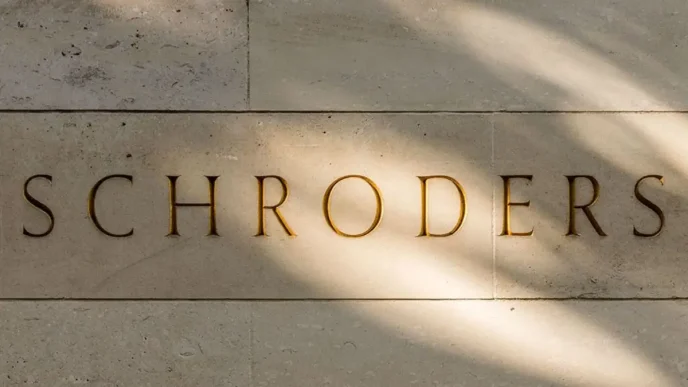In a spirited address during the launch of the 2025 National Month and Fly the Jalur Gemilang campaign in Muar, Johor, Malaysian Prime Minister Datuk Seri Anwar Ibrahim outlined his administration’s commitment to reducing the country’s national debt and defended recent fuel pricing policies. Speaking at Dataran Tanjung Emas on July 27, 2025, Anwar emphasized the need for fiscal responsibility to protect future generations while addressing criticisms of his government’s economic strategies. His remarks come at a time when Malaysia is navigating complex economic challenges, balancing development needs with the burden of inherited debt.
Fiscal Responsibility: A Burden for Future Generations
Anwar’s speech underscored a pressing concern for Malaysia’s financial health, with the Prime Minister highlighting the dangers of unchecked borrowing. He acknowledged that while loans for development are sometimes necessary, the current debt levels remain alarmingly high. “Our debt is still high. If we don’t pay it back, then who will want to invest in us? We want to bring the debt level down and avoid adding new loans because in the end, the ones who will pay for it are our children” he stated during the event.
The Prime Minister provided a detailed account of his administration’s efforts to manage the debt, countering accusations that his government has allowed it to spiral out of control. He explained that a loan of RM100 billion was taken in 2022 primarily to repay earlier borrowings and their associated interest. This figure decreased to RM90 billion in 2023 and further to RM80 billion in 2025, reflecting a gradual reduction. “We are reducing it gradually” Anwar asserted, addressing critics directly.
Drawing a historical parallel, Anwar expressed understanding for past leaders like Tun Abdul Razak, who borrowed from institutions such as the World Bank to establish initiatives like the Federal Land Development Authority (Felda) and to fund rural development. “If it’s that kind of debt, I accept it” he said. However, he drew a firm line against what he described as irresponsible borrowing for personal gain, using the Malay term ‘Sakau’ (to plunder) to condemn such practices. “But if we’re talking about taking loans to Sakau, that is what we are fighting against now” he added, urging Malaysians to elect leaders who prioritize national wealth over personal enrichment.
Anwar also hinted at past financial improprieties without naming specific individuals, citing examples of family members of former leaders allegedly possessing vast sums—RM1.2 billion in one case and RM4 billion in another. “I am not vengeful or going after old people. I just want the people’s money to be returned” he clarified, framing his stance as one of accountability rather than retribution. He further noted that his Cabinet is actively working to address systemic weaknesses, including issues of attitude, leadership, and abuse of power for personal or familial benefit.
Fuel Pricing: Prioritizing Malaysians Over Foreigners
In a separate but equally contentious segment of his speech, Anwar defended his government’s recent decision to lower petrol prices for Malaysian citizens while requiring foreigners to pay market rates. This policy, which reduced the price of petrol by six sen to RM1.99 per liter for locals, has drawn criticism for being discriminatory toward non-citizens. Anwar, however, was unapologetic, declaring, “I am Prime Minister for Malaysians, not for foreigners.”
He argued that foreigners do not contribute to Malaysia’s tax base in the same way locals do, stating, “They do not pay income tax here. No country in the world will allow foreigners to enjoy such benefits as locals.” Under the new policy, foreigners are required to pay between RM2.50 and RM2.60 per liter, a rate Anwar justified by comparing Malaysia’s subsidized prices to those in neighboring countries like Singapore, Thailand, and Indonesia, where fuel costs are significantly higher. This move, he suggested, ensures that government resources are directed toward benefiting Malaysian citizens first.
The fuel pricing policy reflects a broader theme in Anwar’s administration: a focus on national priorities amid economic constraints. While critics argue that foreigners contribute to the economy through tourism and business, Anwar’s position underscores a populist approach, aiming to resonate with local voters who have long grappled with rising living costs.
Economic Context: Malaysia’s Debt and Development Challenges
Malaysia’s national debt has been a longstanding concern, with figures from recent years showing a persistent burden on the economy. According to data from the Ministry of Finance, the country’s debt-to-GDP ratio has hovered above 60% in recent years, a threshold often considered risky for emerging economies. While Anwar’s administration has made strides in reducing new borrowings, the legacy of past loans—some tied to controversial projects and alleged mismanagement—continues to weigh heavily.
Analysts note that Malaysia’s economic recovery post-pandemic has been uneven, with sectors like manufacturing and tourism showing growth, but challenges such as inflation and currency depreciation persist. The Malaysian ringgit has faced pressure against the US dollar, partly due to global economic uncertainties and domestic fiscal concerns. Reducing debt while maintaining investments in critical areas like infrastructure and education remains a delicate balancing act for Anwar’s government.
Historically, initiatives like Felda, which Anwar referenced positively, played a pivotal role in rural development, transforming palm oil plantations into economic lifelines for smallholder farmers. However, over the decades, mismanagement and corruption scandals have tarnished some of these programs, contributing to public skepticism about government borrowing. Anwar’s emphasis on distinguishing between good and bad debt signals an intent to rebuild trust by prioritizing transparency and purpose-driven fiscal policies.
Political Implications: Anwar’s Leadership in Focus
Anwar Ibrahim’s tenure as Prime Minister, which began in November 2022 after decades of political struggle, has been marked by a reformist agenda. His coalition government, known as the Unity Government, comprises diverse parties, making policy consensus a constant challenge. The National Month launch provided a platform for Anwar to reinforce his image as a leader focused on fiscal prudence and national pride, themes central to the annual celebration of Malaysia’s independence.
His critique of past financial mismanagement also serves a political purpose, subtly referencing high-profile corruption cases that have dominated Malaysian headlines for years. While Anwar avoided naming individuals, his comments likely allude to figures associated with the 1MDB scandal and other financial controversies that have eroded public trust in governance. By positioning his administration as one committed to recovering misappropriated funds, Anwar aims to differentiate himself from predecessors while addressing voter demands for accountability.
However, his fuel pricing policy may invite further scrutiny, particularly from Malaysia’s neighbors and international observers. Singapore, with its significant cross-border traffic with Johor, could see economic ripple effects if Malaysian fuel policies deter tourists or workers. Within Malaysia, opposition parties may seize on the policy to argue that it alienates foreign investors or damages the country’s reputation as a regional hub. Anwar’s unyielding stance—“Prime Minister for Malaysians, not for foreigners”—may resonate domestically but risks complicating diplomatic relations in a region reliant on economic interdependence.
Looking Ahead: A Test of Reforms
Anwar’s address in Muar encapsulates the dual challenges facing his administration: managing a hefty national debt while implementing policies that prioritize local welfare. His commitment to reducing borrowing and recovering public funds signals a long-term vision for fiscal stability, but the road ahead is fraught with obstacles. Economic analysts suggest that while the gradual reduction in new loans is a positive step, structural reforms—such as streamlining subsidies and enhancing revenue collection—are equally critical to achieving sustainable growth.
On the social front, initiatives like the National Month campaign aim to foster unity and patriotism, providing a backdrop for Anwar to rally public support for his policies. Yet, as Malaysia grapples with economic disparities and political divisions, the effectiveness of such symbolic gestures remains uncertain. The fuel pricing debate, meanwhile, highlights the tension between populist measures and broader economic considerations, a balance Anwar must strike to maintain both domestic approval and regional credibility.
As Malaysia moves forward under Anwar’s leadership, the impact of his fiscal and social policies will be closely watched. Can debt reduction coexist with necessary development spending? Will prioritizing local benefits over foreign considerations strengthen national resilience or isolate Malaysia economically? These questions linger as Anwar steers the nation through a pivotal chapter, with the weight of future generations squarely on his shoulders.

